Are you a landlord navigating the tricky waters of rental agreements? It can be daunting to inform tenants about a rise in rent, especially when you want to maintain a good relationship. Crafting a letter that strikes the right tone is essential, as it serves as both notification and reassurance about the rising costs. Curious about how to write a clear and considerate rent increase notice? Read on for a helpful template!
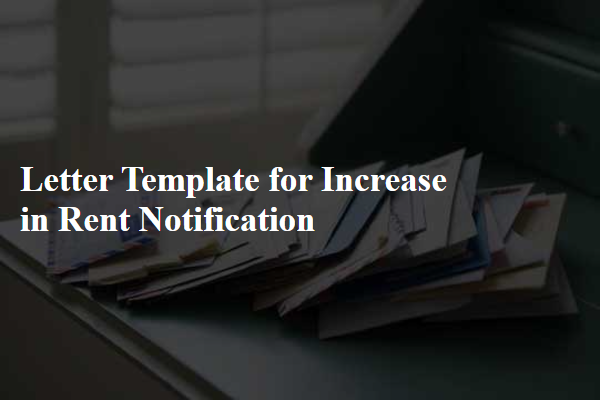
Legal compliance and regulations
In compliance with local rental laws, landlords must provide tenants with sufficient notification regarding any increase in rent. For example, in many jurisdictions, a minimum of 30 days' notice is required before the new rental amount takes effect, highlighting the importance of adherence to state regulations governing landlord-tenant relationships. The notice should detail the reason for the increase, such as rising property taxes or increased maintenance costs, ensuring transparency. It also typically outlines the new rental rate alongside the effective date, ensuring tenants have adequate time to adjust their budgets or seek alternative housing options. Additionally, compliance with the Fair Housing Act ensures that rent increases do not discriminate against protected classes.
Clear communication and tone
Rising rental costs often necessitate clear communication from landlords to tenants. An increase in rent can be attributed to various factors such as inflation, maintenance expenses, and property improvements. For instance, when median rental prices in urban areas like San Francisco rise by approximately 5% annually, landlords may adjust rents accordingly to align with market trends. A well-structured notification should detail the new rental amount, effective date, and the reasons behind the increase. This transparency fosters understanding and maintains a positive landlord-tenant relationship. Additionally, providing sufficient notice, usually 30 to 60 days, allows tenants to prepare for financial adjustments or potential relocation. Clear and respectful language enhances communication, ensuring that tenants feel valued while addressing necessary changes in the rental agreement.
Specific details of the rent increase
The upcoming rent increase notification informs tenants of a 10% hike in monthly payments, effective February 1, 2024, impacting residential units located at 123 Main Street, Springfield. The current rent of $1,200 will rise to $1,320, reflecting adjustments in local property taxes and maintenance costs. This decision aligns with a broader trend in the Springfield housing market, where average rents surged by 8% over the past year, influenced by factors such as inflation and increased demand. Tenants are advised to review their lease agreements for terms regarding rent adjustments and to reach out to the management office at (555) 123-4567 for further clarification or concerns.
Justification or reason for the increase
The recent increase in rental prices within urban areas has prompted a reassessment of current lease agreements. Market trends indicate a significant rise in demand for residential properties, reflecting a 12% increase regionally over the past year according to the National Association of Realtors. Inflation rates, reaching over 6% this year, have also impacted operational costs for property maintenance and management. Additionally, improvements made to the apartment complex, such as updated HVAC systems and enhanced security features, have elevated the living experience, justifying the need for an adjustment to the monthly rent. This increase aims to align with the current market rate while ensuring continued high standards of maintenance and amenities.
Notice period and effective date
Rental agreements often require landlords to issue a formal rent increase notification to tenants, detailing the new rental amount and effective date. It is essential for landlords to comply with local regulations regarding notice periods, which typically range from 30 to 60 days depending on jurisdiction. For example, in California, landlords must provide at least 30 days' notice for rent increases under 10%, while increases over 10% necessitate a 90-day notice. Effective dates must be clearly stated to avoid confusion and ensure tenants understand when the new rate will take effect. Including contact information and a friendly tone can help maintain positive landlord-tenant relations during this transition.

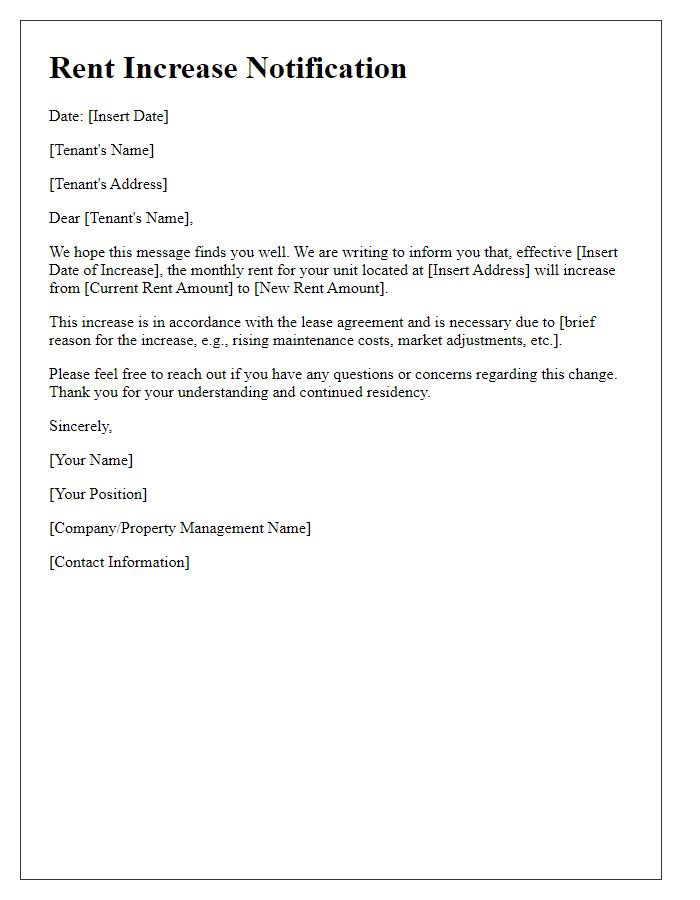
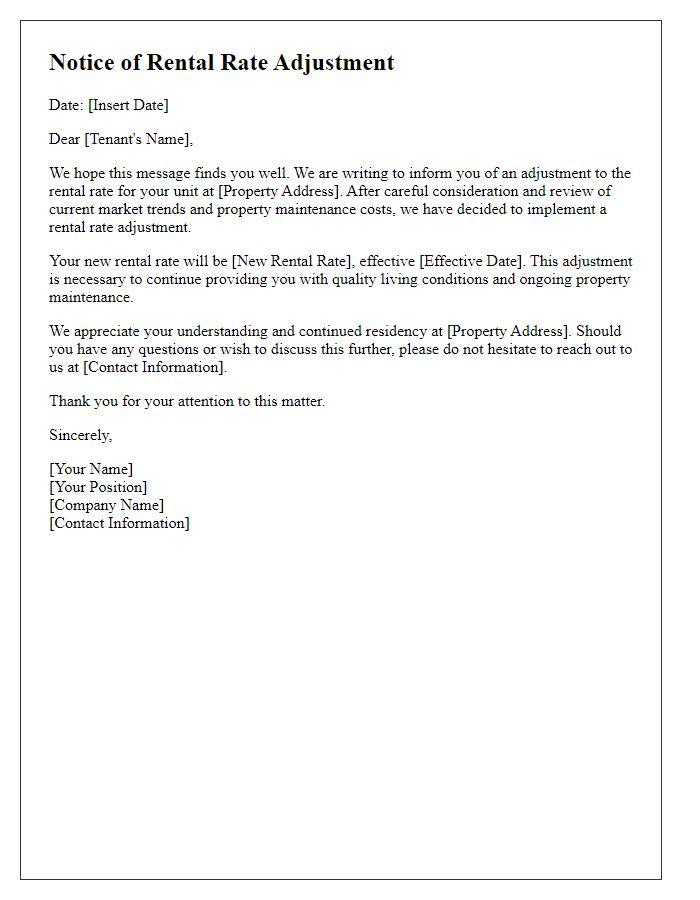
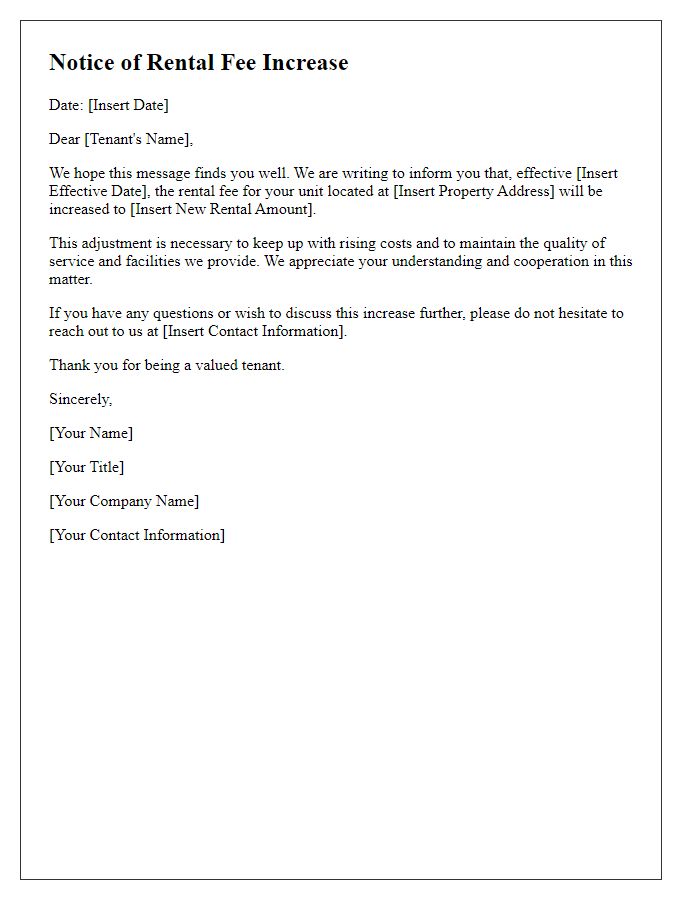
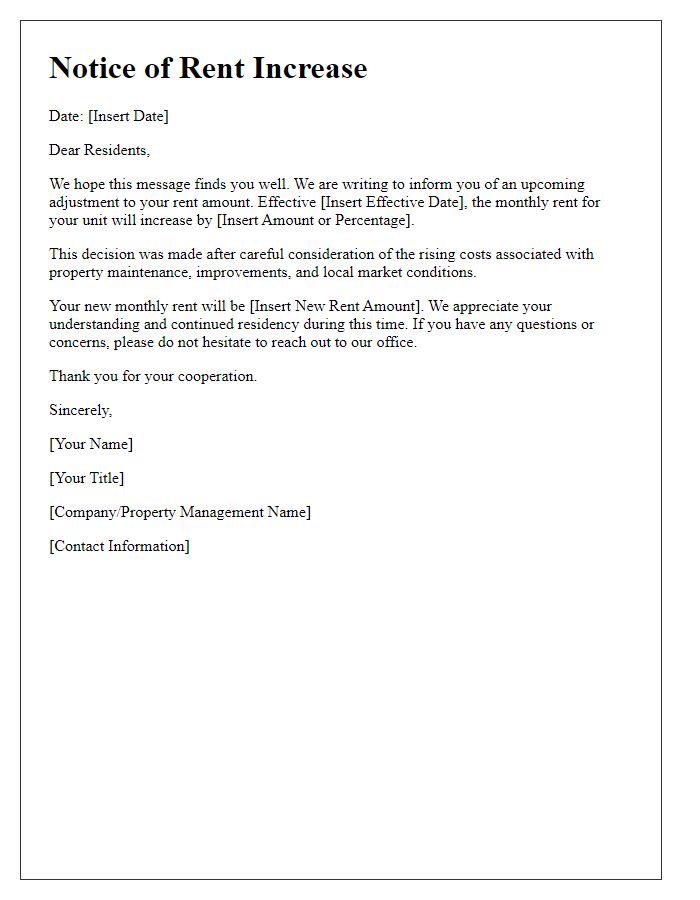
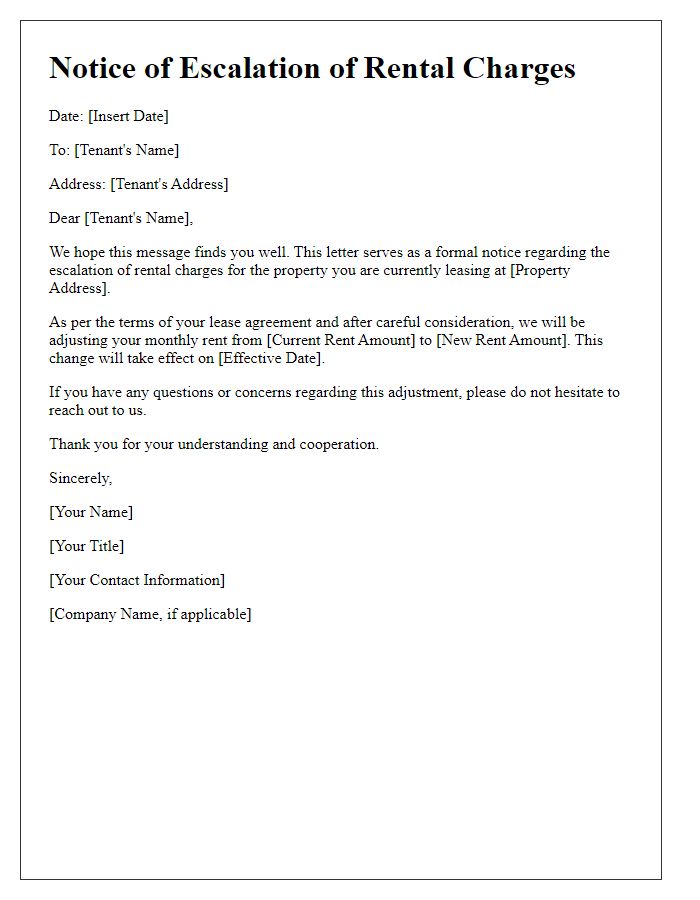
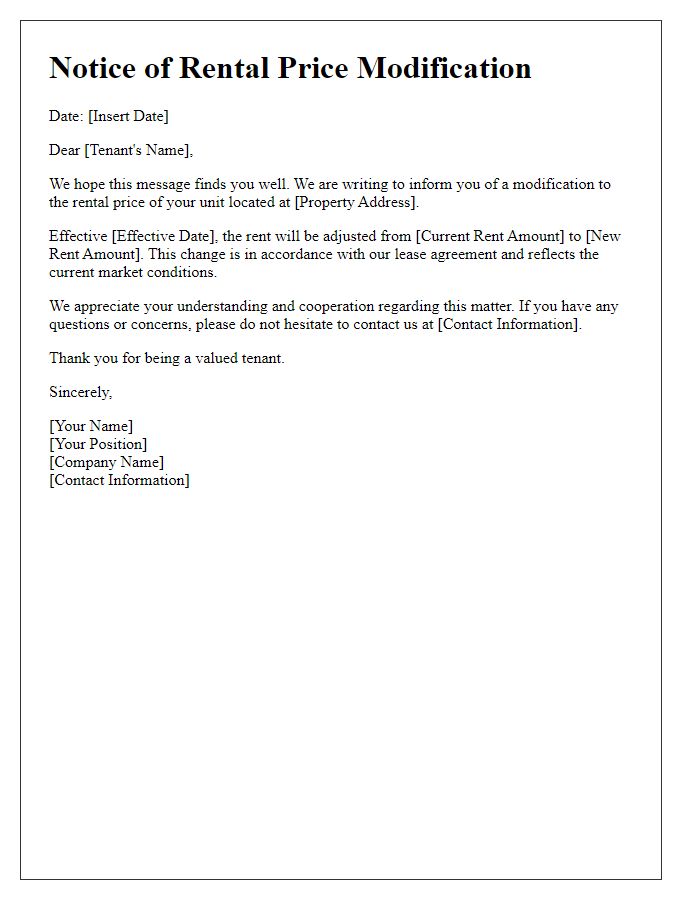
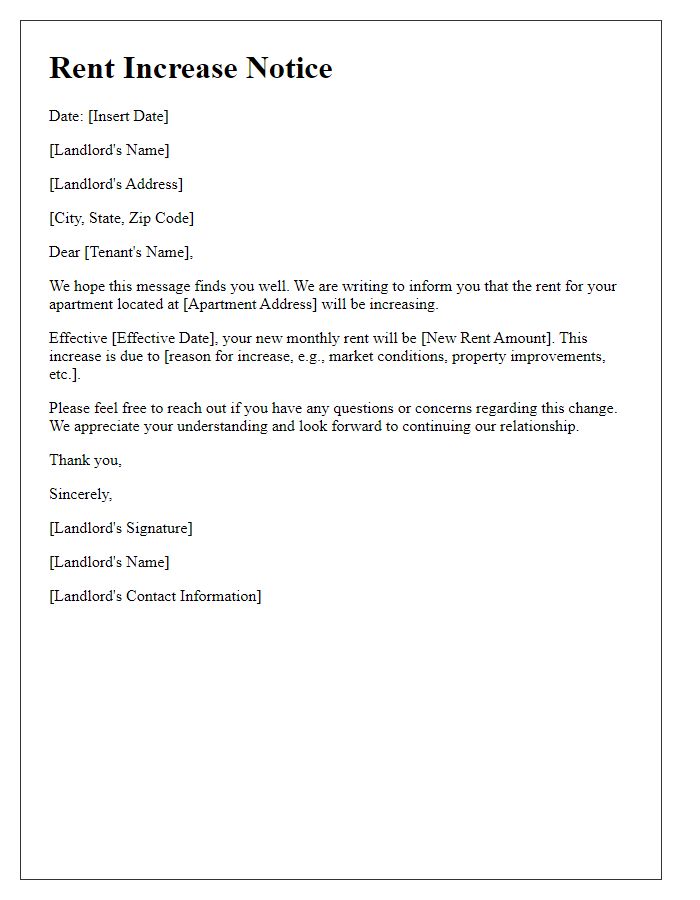
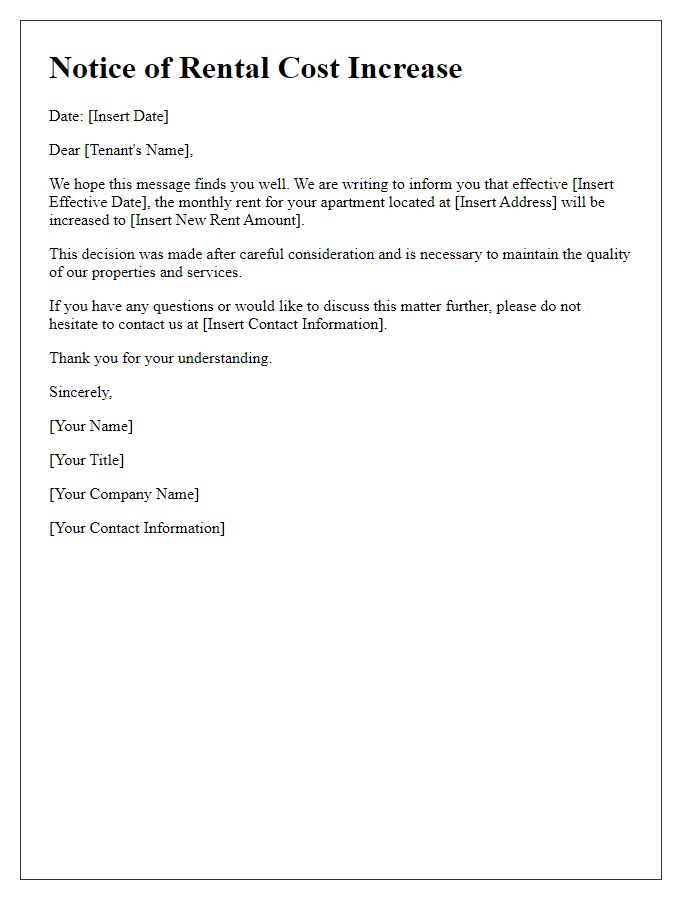
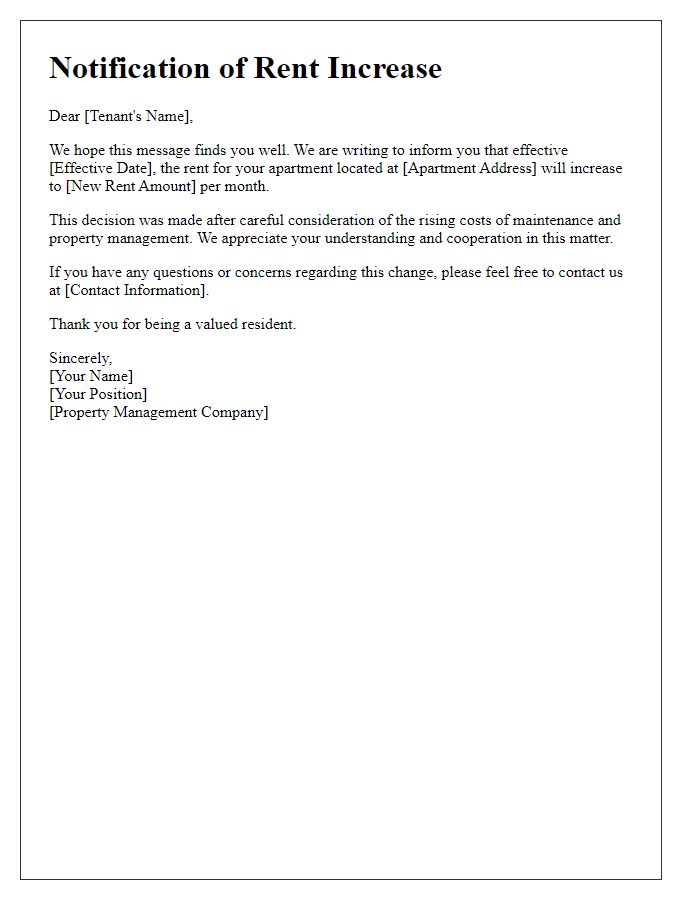
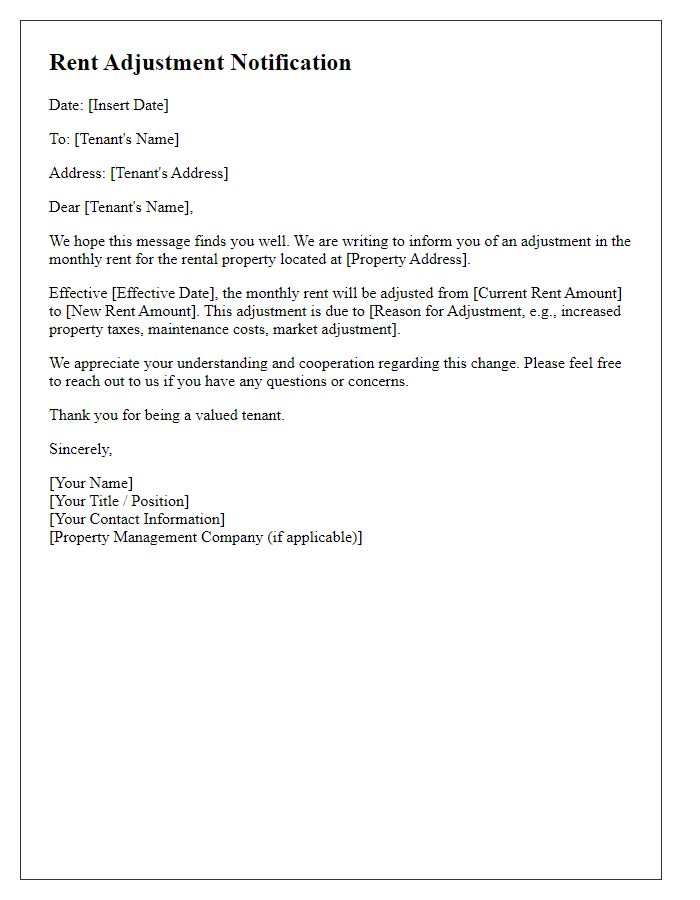

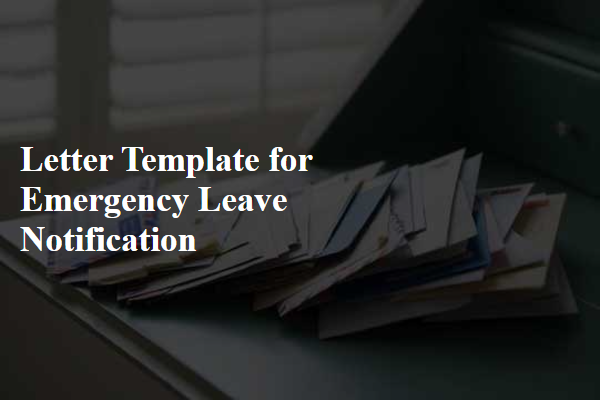
Comments